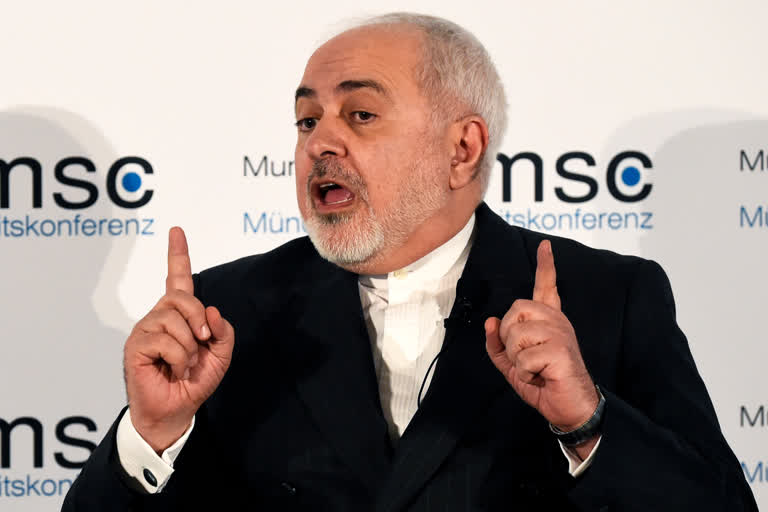Munich: Iran's foreign minister said Saturday that US President Donald Trump is receiving bad advice if he believes an American "maximum pressure" campaign against his country will cause the government in Tehran to collapse.
Foreign Minister Mohammad Javad Zarif told a group of top defense officials and diplomats at the Munich Security Conference that the information provided to the president has dissuaded Trump from accepting offers from other leaders to mediate between Washington and Tehran.
"President Trump has been convinced that we are about to collapse so he doesn't want to talk to a collapsing regime," Zarif said.
To support his argument, the Iranian minister cited Trump's decision to pull out unilaterally in 2018 from Iran's nuclear deal with the US and other world powers. Trump said the landmark 2015 accord didn't address Iran's ballistic missile program or regional activities and needed to be renegotiated.
Since then, the Trump administration's re-imposition of US sanctions in a campaign of so-called "maximum pressure" have taken a severe toll on the Iranian economy and sent Iran's currency plunging.
“I believe President Trump, unfortunately, does not have good advisers,” Zarif said. “He's been wanting for Iran to collapse since he withdrew from the nuclear deal.”
Read more:Plane skids off runway onto nearby street in Iran
Zarif also said the killing of Iranian Gen. Qassem Soleimani in a US drone strike in Iraq on Jan. 3 was a miscalculation by Washington that has galvanized support for Iran instead of increasing pressure on the regime.
The Iran nuclear deal, known as the Joint Comprehensive Plan of Action or JCPOA, promised Iran economic incentives in exchange for curbs on its nuclear program. It was intended to prevent Tehran from developing a nuclear bomb, which Iran insists it does not want to do.
Since the US withdrawal, the deal's other signatories - Germany, France, Britain, Russia and China - have unsuccessfully struggled to come up with ways to offset the effects of the new American sanctions.
Washington has pressured the other countries - so far without success - to abandon the deal entirely
